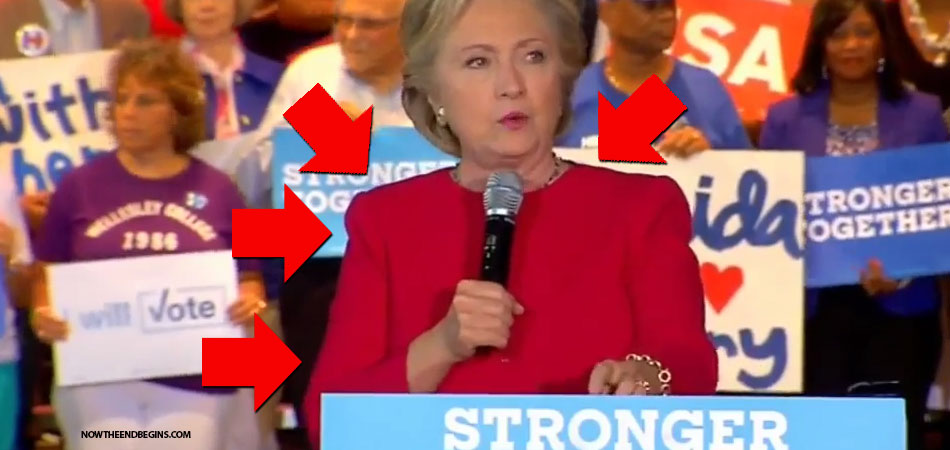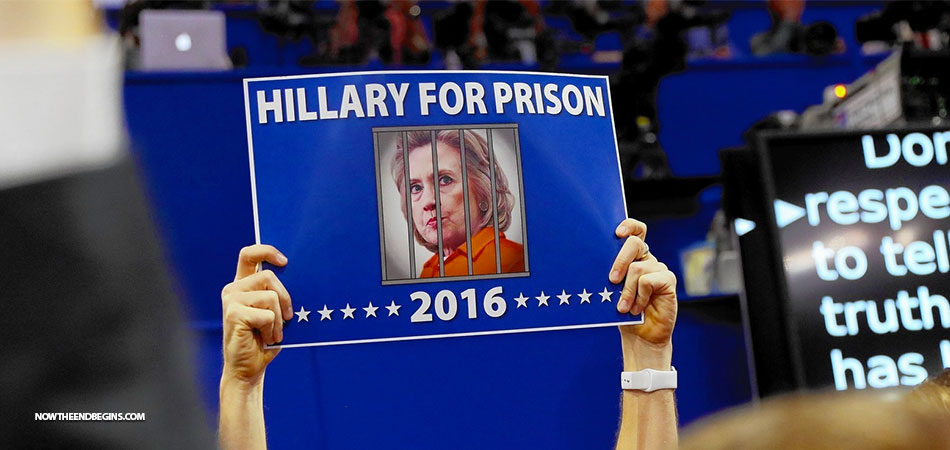Climate Change
WARMING TREND: Yellow Vest Riots In Paris Over High Fuel Prices Now Sparking Global Backlash Against Climate Change Taxes
The yellow vest protests against higher fuel prices as a result of a Climate Change carbon tax in France are not only not over, they are spreading out now.

The single most effective weapon in the fight against climate change is the tax code – imposing costs on those who emit greenhouse gases, economists say. But as French President Emmanuel Macron learned over the past three weeks, implementing such taxes can be politically explosive.
Support for Climate Change is a funny thing. On one hand, it is easy to rouse the masses with passionate speeches about solving man-made climate change. Everyone loves the cleverly designed Powerpoint presentations and compelling infographics, and it’s fun to share them on social media. But then when you try to make those same masses reach into their working class pockets and actually pay the ‘climate tax’, you get another reaction entirely. In France, you got 7 days of bloody riots in the streets that threatened to pull the entire nation to the ground.
The riots now being waged – they are not over – by the Yellow Vest protestors is quite similar to the reason why President Trump pulled America out of the phony Paris Climate Accords. It’s a scam, and everyone knows it, but very few are willing to stick their necks out and stand against it. President Trump did, and now the working class people of France are standing against it as well.
France’s protesters are part of a global backlash against climate change taxes
FROM SF GATE: On Tuesday, France delayed for six months a plan to raise already steep taxes on diesel fuel by 24 cents a gallon and gasoline by about 12 cents a gallon. Macron argued that the taxes were needed to curb climate change by weaning motorists off petroleum products, but violent demonstrations in the streets of Paris and other French cities forced him to backtrack – at least for now.
“No tax is worth putting in danger the unity of the nation,” said Prime Minister Édouard Philippe, who was trotted out to announce the concession. It was a setback for the French president, who has been trying to carry the torch of climate action in the wake of the Paris accords of December 2015. “When we talk about the actions of the nation in response to the challenges of climate change, we have to say that we have done little,” he said last week.
Macron is hardly alone in his frustration. Leaders in the United States, Canada, Australia and elsewhere have found their carbon pricing efforts running into fierce opposition. But the French reversal was particularly disheartening for climate-policy experts, because it came just as delegates from around the world were gathering in Katowice, Poland, for a major conference designed to advance climate measures.
“Like everywhere else, the question in France is how to find a way of combining ecology and equality,” said Bruno Cautrès, a researcher at the Paris Institute of Political Studies. “Citizens mostly see punitive public policies when it comes to the environment: taxes, more taxes and more taxes after that. No one has the solution, and we can only see the disaster that’s just occurred in France on this question.”
“Higher taxes on energy have always been a hard sell, politically,” said Gregory Mankiw, an economics professor at Harvard University and advocate of carbon taxes. “The members of the American Economic Association are convinced of their virtue. But the median citizen is not.”
In the United States – where energy-related taxes are among the lowest in the developed world – politicians, their constituents and their donors have repeatedly made that clear.
President Bill Clinton proposed a tax on the heat content of fuels as part of his first budget in 1993. Known as the BTU tax, for British thermal unit, it would have raised $70 billion over five years while increasing gasoline prices no more than 7.5 cents a gallon.
But Clinton was forced to retreat in the face of a rebellion in his own party. “I’m not going to vote for a BTU tax in committee or on the floor, ever, anywhere. Period. Exclamation point,” said then-Sen. David Boren, D-Okla.
The state of Washington has also tried – and failed twice – to win support for a carbon tax or carbon “fee.” In 2016, the state’s voters rejected a ballot initiative that would have balanced a carbon tax with other tax cuts. In 2018, a wider coalition sought backing for an initiative that would have poured fee revenue into clean energy projects, job retraining and early retirement plans for affected workers. The fee would have started at $15 a ton and gone up $2 a ton for 10 years. It, too, failed.
To be sure, some climate-conscious countries have adopted carbon taxes, including Chile, Spain, Ukraine, Ireland and nations in Scandinavia. Others have adopted cap-and-trade programs that effectively put prices on carbon emissions.
Only around 12 percent of global emissions are covered by pricing programs such as taxes on the carbon content of fossil fuels or permit trading programs that put a price on emissions, according to the International Monetary Fund.
Policy experts say that to some extent the prospects of carbon taxes may depend on what happens to the money raised. Using the revenue for deficit reduction, as was planned in France, is a no-no.
“Even in the best of times, carbon taxes must be carefully crafted to avoid political pitfalls,” said Paul Bledsoe, a former Senate Finance Committee staffer and Clinton White House climate adviser. “In particular, much of the revenue raised must be recycled back to middle-income workers. Macron’s approach put the money toward deficit reduction, stoking already simmering class grievances.” READ MORE
Now The End Begins is your front line defense against the rising tide of darkness in the last days before the Rapture of the Church
HOW TO DONATE: Click here to view our GoFundMe page
When you contribute to this fundraising effort, you are helping us to do what the Lord called us to do. The money you send in goes primarily to the building of the recording studio, but it also goes to the overall daily operations of this site. When people ask for Bibles, we send them out at no charge. When people write in and say how much they would like gospel tracts but cannot afford them, we send them a box at no cost to them for either the tracts or the shipping, no matter where they are in the world. Even all the way to South Africa. We even restarted our weekly radio Bible study on Sunday nights again, thanks to your generous donations.
But whatever you do, don’t do nothing. Time is short and we need your help right now. If every one of the 12,621 people on our daily mailing list gave $4.50, we would reach our goal immediately. If every one of our 151,781 followers on Facebook gave $1.00 each, we would reach 300% of our goal. The same goes for our 13,600 followers on Twitter. But sadly, many will not give, so we need the ones who can and who will give to be generous. As generous as possible.
“Looking for that blessed hope, and the glorious appearing of the great God and our Saviour Jesus Christ;” Titus 2:13 (KJV)
“Thank you very much!” – Geoffrey, editor-in-chief, NTEB
HOW TO DONATE: Click here to view our GoFundMe page

Climate Change
NTEB PROPHECY NEWS PODCAST: Are Cloud Seeding, Chemtrails, HAARP And DARPA Behind All This Crazy ‘Climate Change’ Weather? Today We Find Out!

Yes, we are experiencing Climate Change, but it’s coming to us in the form of cloud seeding, chemtrails, HAARP and all the rest of the dystopian junk in the end times bag of tricks at DARPA
When I hear in the news about ‘man-caused Climate Change’, the last thing that I think about are things like my carbon footprint or greenhouse gases. Instead, my mind goes immediately to cloud seeding, chemtrails, and a little project known as HAARP, all brought to us by the super-secret spies who inhabit the dystopian world of the Defense Advanced Research Projects Agency, otherwise known as DARPA. They are to the New World Order what Josef Goebbels, Wernher von Braun and the SS were to Nazi Germany. Now let’s talk about western North Carolina, shall we?
“Behold ye among the heathen, and regard, and wonder marvellously: for I will work a work in your days, which ye will not believe, though it be told you.” Habakkuk 1:5 (KJB)
On this episode of the NTEB Prophecy News Podcast, the Kings Mountain North Carolina mine site has one of the world’s richest lithium depositions, one of the world’s most-important minerals that fuels the technology that our 21st-century world is so very dependent upon. The mine, about 30 miles west of Charlotte, is expected to play a critical role in establishing the U.S. as a leader in electric vehicle evolution as one of the few hard rock lithium deposits in the country. Obviously this is a very valuable commodity, and in an amazing end times coincidence, this part of western North Carolina is the hardest hit region after Hurricane Helene. What role did cloud seeding, HAARP and chemtrails play in all this? That’s the subject of today’s episode and we will be going as deep as a lithium mine as we scavenger hunt our way for the answers. We will have a huge announcement about our ongoing relief efforts for the residents of Asheville also. As you read this, it’s the one year anniversary of the October 7 attacks in Israel as rockets are falling in the central region of the Jewish state so we just might see the airstrike on Iran during this live show, and we’ll have all the breaking news updates for that. You are not going to want to miss this exciting live broadcast of the Prophecy News Podcast…TO THE FIGHT!!!
Check out what’s new & exciting at the NTEB Bible Believers Bookstore!
Study Helps And Links For Today’s Podcast
- NTEB’ers Are Helping To Send Truckloads Of Bottled Water, Food, Clothing, Diapers And 1,000 King James Bibles To The Folks Up In Asheville North Carolina
- Homeland Security Secretary Mayorkas Gives Grim News That FEMA Has No Money For Hurricane Victims After Massive Funding Of Illegal Immigrants
- 2015: Bombshell As Air Force Openly Admits HAARP Successfully Controlled The Weather
- In 1958, There Was a Hurricane Helene That Hit Category 4 Status On This Exact Date 66 Years Ago, Displaying The Exact Same Satanic Symbolism
- 2019: Why Does Super-Secret Government Agency DARPA Need To Make ‘Immediate Purchase’ Of A Massive ‘Underground Lair’ By End Of Day Today?
- CAUGHT ON TAPE: Incredible Images Of Massive Chemtrails Being Sprayed Over My Head Here In Northeast Florida Captured Live As It Happened
• The NTEB House Church Sunday Service
Every Sunday morning, from 10:00 AM – Noon PM EST, we invite you to join us live and in-person at Bethany Baptist Church here in Saint Augustine where we lift up the Lord Jesus Christ in psalms, hymns and spiritual songs, and preach a message from the pages of the King James Authorized Version Holy Bible.
- OUR MOST RECENT SUNDAY SERVICE VIDEO: 3 Things My Dog Taught Me About The Bible
• The RIGHTLY DIVIDING Radio Bible Study
Every Sunday and Tuesday evenings from 7:00 – 9:00 PM EST, we offer an in-depth rightly dividing and dispensationally correct rocket ride through the preserved word of God as found within the pages of the King James Holy Bible.
- SUNDAY NIGHT: Our original Sunday Night Radio Bible Study, it’s from 7:00 – 9:00 PM EST, and we have praise, singing, testimony and of 90-minute King James Bible study. All our King James bible study programs are archived here.
- TUESDAY NIGHT: Our Tuesday Night Radio Bible Study, it’s from 7:00 – 9:00 PM EST, and we have praise, singing, testimony and of 90-minute King James Bible study. All our King James bible study programs are archived here.
• The NTEB PROPHECY NEWS PODCAST Hour
Every Monday and Friday afternoons from Noon to 1:30 PM EST, we examine breaking news and current events in light of bible prophecy.
- MONDAY AT NOON: Every Monday at Noon we review all the latest news and events related to bible prophecy, and examine what is happening in light of what is written. If you miss the live show, all of our Prophecy News Podcast programs are archived here.
- FRIDAY AT NOON: Friday at Noon we review all the latest news and events related to bible prophecy, and examine what is happening in light of what is written. If you miss the live show, all of our Prophecy News Podcast programs are archived here.
Your Generous Donations Make These Live King James Radio Bible Studies Possible!
On our Sunday and Wednesday night radio bible study, we are preaching and teaching the gospel of the grace of God, rightly divided and dispensationally correct, to a truly global audience who is hungry for the word. These programs would not be possible without your generous support. Listen to just a few of the recent comments we have gotten:
- I thanked God for sending to your website in 2015 , I live in the South of France near Nice and let me tell you here there isn’t any Bible Believing church at all, the sad reality of France is that is full of Freemasons and Muslims. You came to me at the time I was going to take my own life because of my job. You’re anointed person and I pray for you, family and ministry because you’re a blessing to all of us. May God bless you always. I know I’ll meet you in heaven one day. Lots of Love from your sister in Christ, Paula.
- “Hi Geoffrey and staff, Today is my one year anniversary that I got saved on your podcast! I am now a KJB only, I threw away my other two versions I had. I was shocked to learn of the differences and how the new versions twist the words of God, and dilute the message at best. Thank you for the fabulous bible education and fire for the Lord. I donate on your website throughout the year. Thanks for all that you do.” Donna
- “The sole purpose of this email to you is to let you know how much we have been blessed by your amazing ministry/website. ‘We’ is my wife and I, in our early forties, 3 kids, professing, churchgoing, bible believing Christians in The Netherlands. Since two months, I listen to your bible studies on Sunday evening, and since this week also to your prophecy podcast. I listen to them in the archives, because of the 6 hour time difference. The shofar and the blessing at 0:30 into the study never fails to make tears in my eyes. We are praying for you, we are praying for your voice, that it lasts in these incredible busy times for you. Listening to your podcasts, you seem to do it effortlessly, talking, scanning the chatbox for questions, diving into the texts, from Genesis to Revelation and everything in between, I love it when you realize after 1:30h into the study, actually a lot more subjects need to be addressed! Thank you for all your work and effort, you are doing an amazing job. Although it all seems effortlessly, I know it is not…Our faith is strengthened by your work and we are able to testify in a better way to the people around us!” Wouter D. van der Wiel
- “Wanted to send you encouragement and thank you for all you are doing!! I’ve been reading from this website for about 5 years and I’ve been on this at least 10 times a day. It’s the most honest prophecy website in history. And you have ministered to me greatly. This lockdown has been amazing as God gets us unto himself and smooths out the paths for us. I was reading devotional from Kenneth Copeland and during that time you had really hit That ministries hard. I was not Word Faith but I was feeding off his teaching. During this time I have removed Kenneth Copeland I wanted to thank you for your exposure of his ministry. Holy Spirit is truly the leader of all truths. The bible study on Bill Gates was tremendous. And I had the same check in my spirit as you did. He’s the guy that gonna lead this one world revolution Amazing times we live in. I’m super excited and living in total victory and peace. Once again thank you for the time you put in your reward in heaven will truly be great. Looking forward to this coming week. My prayer tonight is this …Father send Your Son!! DG
- “Thank you oh so much for sound teaching. I am so thankful and blessed for clicking on your channel. I have been on your Facebook page since 2011 and never subscribed to you-tube channel until today. I loved the live recording of singing, what a delight to hear the joy of the Lord in the voices of the congregation. So wonderful to hear the part about Luke 12:36, that has made my eyebrows furrow when I read and therefore I have always steadfast to not leaning on my own understanding. May God continue to bless you, your family friends and loved ones. All Glory be to Jesus, my Saviour Redeemer and King, Amen.” Susan Anderson
- “Loved this teaching! Presented in a clear contextual manner that was easy to follow along. You connected the dots for me that had previously brought so much confusion, namely the 4th seal covenant, the 5th seal tribulation saints, and the 6th seal 2nd Coming of Christ AFTER the wedding of the Body/Bride of Christ IN HEAVEN. Wow, after 41 years since my being born again by the Holy Spirit in to the Body of Christ, I finally have the answers to end the confusion. What joy and peace has flooded my heart! Thank you for this encouraging teaching of the Word.” SB
- “I am from Sri Lanka and listen to the radio Bible study every week.” Nihal Perera
Nothing thrills my soul like teaching the word of God, it is what the Lord called me to do 29 years ago, and Now The End Begins is the vehicle in which I am able to do it. How exciting it is to be able to teach the Bible to tens of thousands of people per year. Like I told you with the first post of 2020, I have dedicated myself now full-time to NTEB, and it is only through your generous support that such a thing is possible.
HOW TO DONATE: Click here to view our WayGiver Funding page
Listen to What Our Donation Angels Have to Say About the Ministry of Now The End Begins
- “You are truly an end time ministry and I appreciate how our Precious Lord is using you to educate his very own flock. There is a lot of confusion , but your ministry is putting scripture in the right prospective. Thank-you so so much Geoffrey S Grider for standing firm and putting in a lot of hours of your time. God Bless You , also your Ministry and your family. IN JESUS MIGHT NAME.” T. Muto
- “Jesus. I am now 64 years old and never in all the years I’ve been a Christian was I able to grow in the Lord as much as I have in the last past year. All because of our blessed brother’s work Geoffrey Grider who as the bravery of standing fast forward without fear of claiming the truth of God by the power of his love in Jesus Christ. May God bless you abundantly to the end my dear brother… ROMANS: 8: 36,37,38” Mireille Anderson
- “I met you at the car dealership earlier this year. We spoke briefly, then you handed me a card and told me to check out the website. You left. A few minutes later, you returned to tell me not to forget to look up the website. I told you…” I already did. I already subscribed.” In that short time we spoke, I experienced from you…a total stranger…peace, joy, kindness, gentleness, compassion, and love. I am convinced that God sent you to share the Good News that Jesus Christ is our Lord and Savior. For that, and for the work you are doing for the Kingdom of God, I say…Thank you and God Bless You.” Sonia Merced
- “I really enjoy the emails and Bible studies! I haven’t found a church and enjoy your services very much! Be blessed brother!” Marcia Mann
- “You and your organization are on the front lines in the Battle For Truth…. current events, end times, and trying to awaken a sleeping laodicean Church. Thank you brother for fighting for us and all your teaching and insight God bless…” Daniel Cartrette
- I just want to thank you for the teachings you give every Sunday night on radio. You are such a blessing to me. I absolutely love your way of teaching the scriptures. I don’t have a church where I can have fellowship and teaching, so you have been my teacher for many months now. Thanks God you are there for all of us who have no church to go to. I pray that the Lord will bless you abundantly in your ministry, and your loved ones too. You are such a blessing to me, and many others, in these last days before the rapture. Thank you so much Geoffrey, from the bottom of my heart. May the Lord keep you, until He comes back for us. You are in my prayers.” Donald Godin
- “Thank you for the work you are doing brother. Your page and your testimony were a blessing to me this morning as I came across it for the first time. Thank you for the reality of your testimony and what God has done for you in introducing you to Jesus our Lord. God has brought me, in salvation, to Himself as well, through His love and mercy and grace in salvation. How can we praise Him enough? How can we not share this good news!? I pray this day for God’s blessing on your ministry that He may save many souls through the work He has called you to. Isaiah 40:31 (KJV)” Mark and Melissa
- “Love the Sunday night bible study. I want to support someone who has the passion for the lost like Geoffrey does and rightly divides the word of God. God bless you.” Teresa Carey
- “I give because not many news outlets are brave enough or Godly enough to tell these stories from a Christian’s point of view. I see stories here that will not be seen anywhere else.” William Grayshaw
- “It’s hard to find solid biblical teaching in America these days. It’s a blessing to be able to take part in a ministry financially without being concerned about false teaching. All glory to God! God bless!” Maximilian Swan
- “I donate because you are reporting the truth about the increasing wickedness of our time, as God’s word foretold. In so doing we are reminded to “Keep looking up” as we wait in joyful hope for the Lord’s coming, Maranatha! ” Anthony Sloane
- “Geoffrey has the best End Times News out there. I have been receiving his emails for years now and always enjoy his Sunday night messages although I don’t always think exactly as he thinks. We are all in this “boat of life” together and as I come to the end of my life’s journey here, I am more aware of Jesus’s call for us to be one as He and the Father are One.” Deborah Cleaveland
STREET-TESTED NTEB GOSPEL TRACTS:
This is the official gospel tract of NTEB, used here on the streets of Saint Augustine and sent around the world as they are purchased through our website. We ask you to prayerfully consider supporting the work of Now The End Begins by purchasing a box of these full-color, high-quality gospel tracts. Thank you in advance!
But whatever you do, don’t do nothing. Time is short and we need your help right now. The Lord has given us an open door with a tremendous ‘course’ for us to fulfill that will create an excellent experience at the Judgement Seat of Christ. Please pray for our efforts, and if the Lord leads you to donate, be as generous as possible. The war is REAL, the battle HOT and the time is SHORT…TO THE FIGHT!!!
“Looking for that blessed hope, and the glorious appearing of the great God and our Saviour Jesus Christ;” Titus 2:13 (KJB)
“Thank you very much!” – Geoffrey, editor-in-chief, NTEB
- HOW TO DONATE: Click here to view our WayGiver Funding page
Climate Change
French President Emmanuel Macron Calls For ‘Finance Shock’ As He Opened The Summit For A New Global Financial Pact Meeting In Paris

French President Emmanuel Macron has opened the Summit for a New Global Financial Pact in Paris with Crown Prince Mohammed bin Salman that seeks to find financial solutions to Climate Change
The fomenting of the hysteria surrounding Climate Change is the pandemic that is never going away, and there’s a reason for that. No, man-made activities are not causing the climate to change to any great degree, but the amount of power and money being generate by the climate gatekeepers is truly a change agent. Climate Change is a religion now, the world’s leaders its high priests, and you and I are the sacrifice that they are offering to their god. So who is the keynote speaker at the Summit for a New Global Financial Pact? None other than our little end times buddy, the 5-named Emmanuel Jean Michel Frederic Macron. Did you honestly think it would be anyone else?
“And he shall plant the tabernacles of his palace between the seas in the glorious holy mountain; yet he shall come to his end, and none shall help him.” Daniel 11:45 (KJB)
There were some big heavyweights sitting in attendance to hear Macon speak. United Nations Secretary-General Antonio Guterres, US Treasury Secretary Janet Yellen, and Saudi Arabia Prime Minister Crown Prince Mohammed bin Salman, just to name a few. These are the people who collectively decide the fate of the whole world, who gets a vaccine, who gets a digital ID, and all the other pressing questions related to the end times we find ourselves in. UN Secretary-General Antonio Guterres has worked with Macron before.
Macron opens climate summit in Paris, calls for ‘finance shock’
FROM ALJAZEERA: In his opening remarks, Macron on Thursday told delegates that the world needs a “public finance shock” – a global push of innovation and financing – to fight these challenges, adding the current system was not well suited to address the world’s challenges.
“Policymakers and countries shouldn’t ever have to choose between reducing poverty and protecting the planet,” Macron said.
Ugandan climate campaigner Vanessa Nakate took the podium after Macron and asked the audience to take a minute of silence for people who are suffering from disasters. She criticised the fossil fuel industry, saying they promise development for poor communities but the energy goes elsewhere and the profits “lie in the pockets of those who are already extremely rich”.
“It seems there is plenty of money, so please do not tell us that we have to accept toxic air and barren fields and poisoned water so that we can have development,” she said.
🔴🇫🇷 French President Emmanuel #Macron gave an #exclusive interview to FRANCE 24, RFI and franceinfo, as Paris hosted the summit for a New Global Financial Pact.
⚠️ Among other things, he said that Russia played a part in destabilising the world 👇 pic.twitter.com/vFpQ0g7WXI
— FRANCE 24 English (@France24_en) June 23, 2023
Leaders attending the summit include Barbados Prime Minister Mia Mottley, who has become a powerful advocate for reimagining the role of the World Bank and International Monetary Fund in an era of climate crisis.
“What is required of us now is absolute transformation and not reform of our institutions,” said Mottley, whose country has put forward a detailed plan for how to fix the global financial system to help developing countries invest in clean energy and boost resilience to climate impacts.
“We come to Paris to identify the common humanity that we share and the absolute moral imperative to save our planet and to make it livable,” she said.
Other participants include United Nations Secretary-General Antonio Guterres, US Treasury Secretary Janet Yellen, Saudi Arabia Prime Minister Crown Prince Mohammed bin Salman, IMF Managing Director Kristalina Georgieva and World Bank President Ajay Banga. READ MORE
Now The End Begins is your front line defense against the rising tide of darkness in the last Days before the Rapture of the Church
- HOW TO DONATE: Click here to view our WayGiver Funding page
Please continue to pray for us, and for wisdom for me especially, as we continue taking steps to print the NTEB branded King James Bible for our free Bible and Bibles Behind Bars program. It is exciting and intimidating at the same time. If the Lord has prospered your financially, we ask you to donate to help us continue to send out free Bibles at this level, and even higher than we are at the moment. It takes a lot of prayer, and a lot of resources to do all this. Praise the Lord we are doing it, all of us together, labouring in the Lord’s harvest field. TO THE FIGHT!!!
When you contribute to this fundraising effort, you are helping us to do what the Lord called us to do. The money you send in goes primarily to the overall daily operations of this site. When people ask for Bibles, we send them out at no charge. When people write in and say how much they would like gospel tracts but cannot afford them, we send them a box at no cost to them for either the tracts or the shipping, no matter where they are in the world. We have a Gospel Billboard program. We are now broadcasting Bible studies, Podcasts and a Sunday Service 5 times a week, thanks to your generous donations. All this is possible because YOU pray for us, YOU support us, and YOU give so we can continue growing.
But whatever you do, don’t do nothing. Time is short and we need your help right now. The Lord has given us an open door with a tremendous ‘course’ for us to fulfill that will create an excellent experience at the Judgement Seat of Christ. Please pray for our efforts, and if the Lord leads you to donate, be as generous as possible. The war is REAL, the battle HOT and the time is SHORT…TO THE FIGHT!!!
“Looking for that blessed hope, and the glorious appearing of the great God and our Saviour Jesus Christ;” Titus 2:13 (KJB)
“Thank you very much!” – Geoffrey, editor-in-chief, NTEB
Climate Change
Climate Change Agitator Greta Thunberg Deletes June 2018 Tweet Saying The World Will End In 5 Years If We Don’t Stop Using Fossil Fuels, It Didn’t

‘A top climate scientist is warning that climate change will wipe out all humanity unless we stop using fossil fuels over the next five years.’ Greta Thunberg’s post read from June of 2018.
On June 21st of 2018, climate hoaxer Greta Thunberg retweeted a post from a ‘top climate scientist’ that said ‘humans will go extinct unless we stop using fossil fuels over the next 5 years’. Today is the 5th anniversary of that tweet, and the world we live in, riddled with sin though it may be, is not even close to extinction. Obviously, Thunberg’s claim did not turn to out to be even remotely true. Al Gore also told many whoppers in his ‘Inconvenient Truth’ presentation whose predictions also did not materialize.
“But the day of the Lord will come as a thief in the night; in the which the heavens shall pass away with a great noise, and the elements shall melt with fervent heat, the earth also and the works that are therein shall be burned up.” 2 Peter 3:10 (KJB)
The book of Revelation in your King James Bible has a lot to say about the many changes our climate will go through sooner rather than later, all of them negative, and all of them 100% ‘on the money’, unlike the dubious prognostications by Greta Thunberg, Al Gore and the rest of the ‘carbon tax’ scammers. Make no mistake about it, Climate Change is absolutely a religion, and its priests have no problem with human sacrifice to further the agenda.
Greta Thunberg deletes 2018 tweet saying world will end in 2023 after world does not end
FROM THE POST MILLENNIAL: Greta Thunberg first rose to prominence in August 2018 when she was 15 years old and began protesting outside of the Swedish Parliament over the issue of climate change. Her protests would take place on Fridays when she would skip class. Thunberg would have graduated by now if she would have stayed in school.
Hi @GretaThunberg! Why did you delete this? pic.twitter.com/YRyrCje0L1
— Jack Poso 🇺🇸 (@JackPosobiec) March 11, 2023
Thunberg has called for the governments to make bolder moves on the issue of climate change and she often travels to countries on a yacht to advance her cause.
Former Vice President Al Gore has been criticized for taking license with the facts around mankind extinction predictions due to climate change in the past. The most famous example being his 2006 film An Inconvenient Truth which “did exaggerate some dire scenarios” in order to “shock the public into action” according to National Snow and Ice Data Center scientist Ted Scambos. READ MORE
Now The End Begins is your front line defense against the rising tide of darkness in the last Days before the Rapture of the Church
- HOW TO DONATE: Click here to view our WayGiver Funding page
Please continue to pray for us, and for wisdom for me especially, as we continue taking steps to print the NTEB branded King James Bible for our free Bible and Bibles Behind Bars program. It is exciting and intimidating at the same time. If the Lord has prospered your financially, we ask you to donate to help us continue to send out free Bibles at this level, and even higher than we are at the moment. It takes a lot of prayer, and a lot of resources to do all this. Praise the Lord we are doing it, all of us together, labouring in the Lord’s harvest field. TO THE FIGHT!!!
When you contribute to this fundraising effort, you are helping us to do what the Lord called us to do. The money you send in goes primarily to the overall daily operations of this site. When people ask for Bibles, we send them out at no charge. When people write in and say how much they would like gospel tracts but cannot afford them, we send them a box at no cost to them for either the tracts or the shipping, no matter where they are in the world. We have a Gospel Billboard program. We are now broadcasting Bible studies, Podcasts and a Sunday Service 5 times a week, thanks to your generous donations. All this is possible because YOU pray for us, YOU support us, and YOU give so we can continue growing.
But whatever you do, don’t do nothing. Time is short and we need your help right now. The Lord has given us an open door with a tremendous ‘course’ for us to fulfill that will create an excellent experience at the Judgement Seat of Christ. Please pray for our efforts, and if the Lord leads you to donate, be as generous as possible. The war is REAL, the battle HOT and the time is SHORT…TO THE FIGHT!!!
“Looking for that blessed hope, and the glorious appearing of the great God and our Saviour Jesus Christ;” Titus 2:13 (KJB)
“Thank you very much!” – Geoffrey, editor-in-chief, NTEB
-
George Soros9 years ago
Proof Of George Soros Nazi Past Finally Comes To Light With Discovery Of Forgotten Interview
-
Election 20169 years ago
DEAD POOL DIVA: Huma Abedin Kept Those Hillary Emails That The FBI Found In A Folder Marked ‘Life Insurance’
-
Election 20169 years ago
Crooked Hillary Campaign Used A Green Screen At Today’s Low Turnout Rally In Coconut Creek FL
-
George Soros9 years ago
SORE LOSER: George Soros Declares War On America As Violent MoveOn.Org Protests Fill The Streets
-
Donald Trump9 years ago
Donald Trump Will Be 70 Years, 7 Months And 7 Days Old On First Full Day In Office As President
-
Headline News9 years ago
If Hillary Is Not Guilty, Then Why Are Her Supporters Asking Obama To Pardon Her? Hmm…
-
Election 20169 years ago
WikiLeaks Shows George Soros Controlling Vote With 16 States Using SmartMatic Voting Machines
-
End Times9 years ago
False Teacher Beth Moore Endorses The Late Term Partial-Birth Abortion Candidate Crooked Hillary























































































